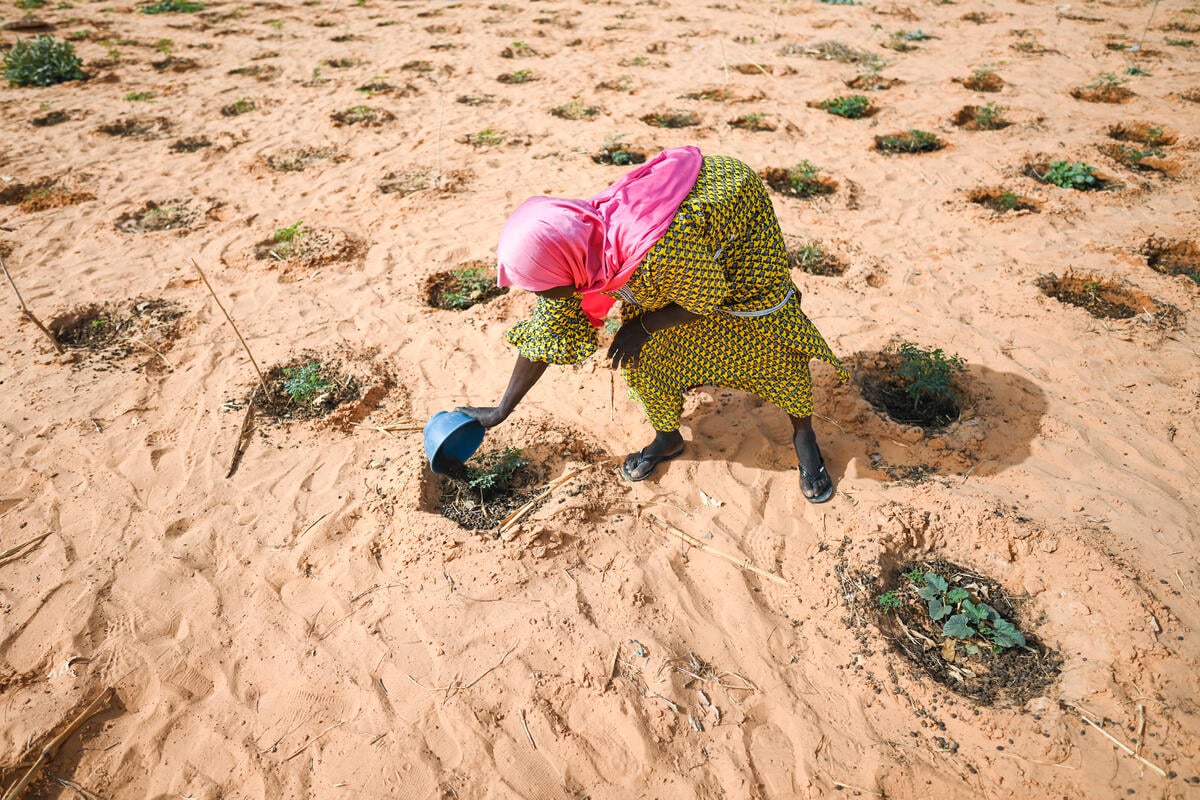UNHCR backs calls for ceasefire in DR Congo as concern mounts
UNHCR backs calls for ceasefire in DR Congo as concern mounts

GOMA, Democratic Republic of the Congo, November 7 (UNHCR) - The UN refugee agency on Friday backed mounting calls for an immediate halt to fighting in eastern Democratic Republic of the Congo (DRC) amid growing concerns over tens of thousands of displaced civilians.
"We hope today's talks in Nairobi will lead to an immediate end to hostilities because the humanitarian needs in North Kivu are enormous," said UNHCR chief spokesman Ron Redmond as regional leaders met UN Secretary-General Ban Ki-moon in Kenya to discuss how to avoid the fighting from escalating into a regional conflict and salvage a peace deal forged in January between DRC's rivals.
The refugee agency is extremely concerned about the security of some 65,000 internally displaced civilians in the Kibati camps on the outskirts of Goma, the capital of troubled North Kivu province. "We fear that the civilian population, already in a desperate humanitarian situation, could be caught in the crossfire should fighting resume in the area," said the spokesman.
UNHCR staff said shooting had erupted on Friday morning in the vicinity of the two Kibati camps, interrupting the distribution of aid and causing panic among the camp population. The shooting stopped after about 30 minutes, the UNHCR staff reported, while adding that people from the camp continued to move south toward Goma. A fresh outbreak of shooting was heard later in the day, sending the internally displaced people (IDPs) into a new panic.
"Thousands of IDPs fled Kibati camp after hearing gunfire. Families with children gathered their few possessions ... and headed towards Goma. Some children were screaming for their parents after getting lost in the confusion of the exodus," said one eye-witness after the morning clashes. "The road to Goma had a steady flow of IDPs heading south, while [government] soldiers were seen marching north to the camp."
The fighting is pitting government soldiers and pro-government militia against fighters loyal to renegade commander, Laurent Nkunda, and the opposing forces are close to the camps.
"We are again appealing to all sides in the conflict to respect the civilian character of the camps, to respect humanitarian principles and to ensure the safety of civilians and those trying to help them. There is also a risk of militarization in the camps," said the UNHCR spokesman.
UNHCR and other agencies are rushing to get life-saving assistance to the internally displaced civilians as quickly as possible in an extremely volatile environment characterized by widespread human rights abuses and general lawlessness.
The agencies have been distributing humanitarian assistance in Kibati, including food, plastic sheeting for shelter construction, blankets, mats, kitchen sets, mosquito nets and jerry cans. Deliveries are being made to six UNHCR-managed camps around Goma.
The refugee agency is looking into the possibility of opening another camp west of Goma in case the situation in Kibati becomes untenable. The security situation in Goma was quiet though tense on Friday.
Fighting in North Kivu intensified at the end of 2006. By January 2008, it had brought the total number of IDPs in the region to more than 800,000. Since the fighting resumed in August, some 250,000 civilians have fled, many of them already displaced.
By David Nthengwe in Goma, Democratic Republic of the Congo








